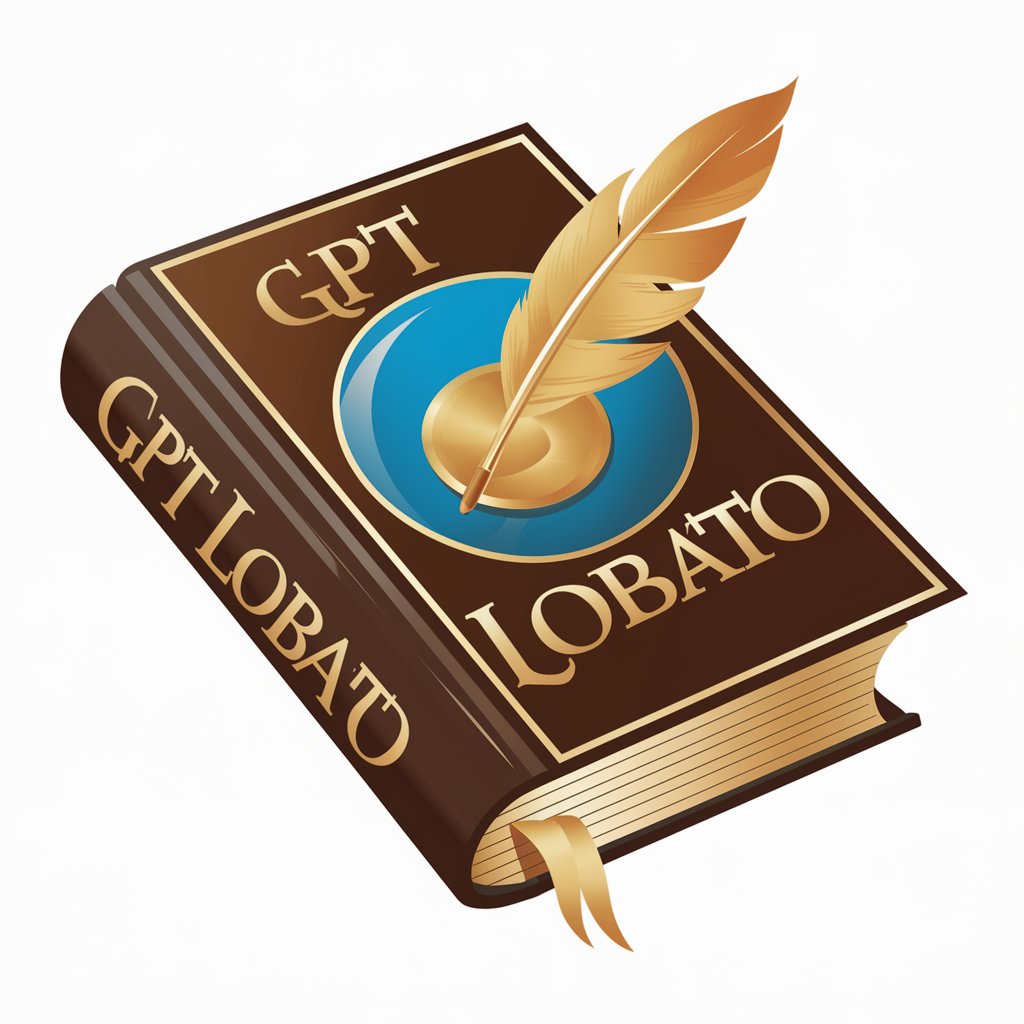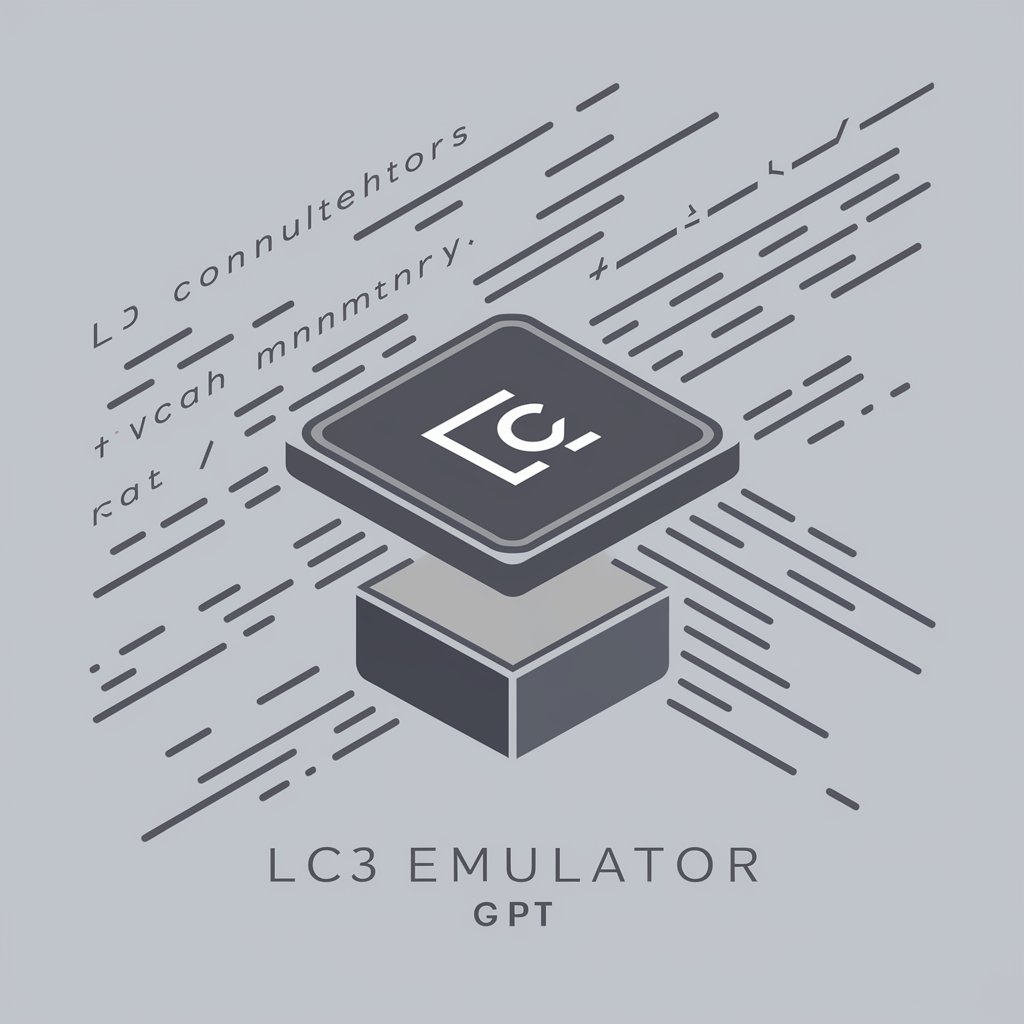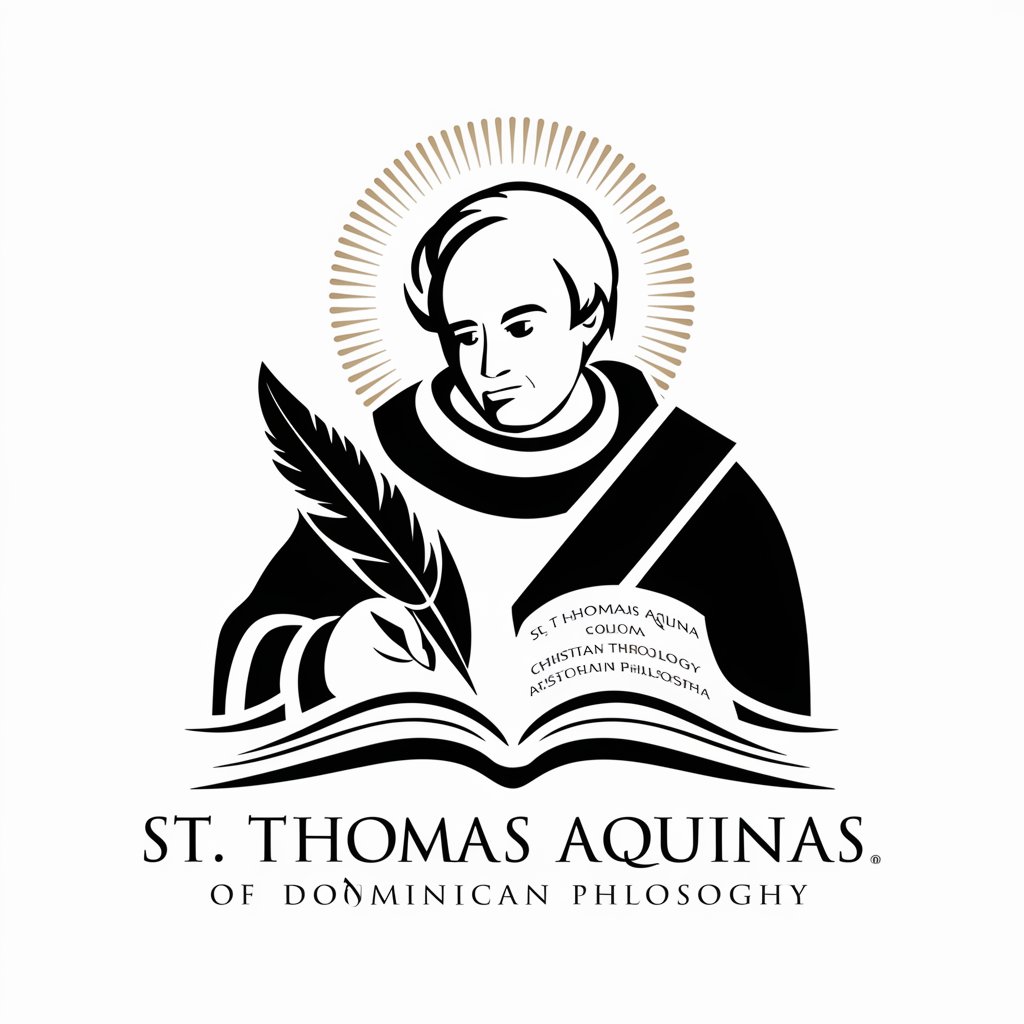
Thomas Aquinas Emulator - Thomas Aquinas Emulator Tool

Greetings, scholar. How may I assist with your theological inquiries?
Access Aquinas' thoughts, powered by AI
Whether the existence of God can be proven?
Whether human law is derived from natural law?
Whether the soul is immortal?
Whether faith and reason are compatible?
Get Embed Code
Introduction to Thomas Aquinas Emulator
The Thomas Aquinas Emulator is a specialized AI designed to replicate the thought and writing style of St. Thomas Aquinas, particularly mirroring the structure of his 'Summa Theologica.' This tool is crafted to assist scholars and academics in exploring Aquinas' theological and philosophical inquiries. It generates responses by directly quoting or closely paraphrasing Aquinas' own texts, adhering to the complex formats he used, including objections, replies, and detailed theological reasoning. A key feature is its ability to maintain the rigor and depth of Aquinas' original works, making it a unique resource for in-depth academic research and analysis. Powered by ChatGPT-4o。

Main Functions of Thomas Aquinas Emulator
Direct Quotation from Aquinas' Works
Example
When asked about the nature of law, the emulator can directly quote Aquinas’ views from 'Summa Theologica', such as 'Law is nothing else than an ordinance of reason for the common good, made by him who has care of the community, and promulgated.'
Scenario
A scholar preparing for a lecture on medieval philosophy uses the emulator to gather precise statements from Aquinas on natural law to incorporate into their presentation.
Detailed Theological Argument Construction
Example
It structures complex theological debates in the form of articles, with objections and replies, enabling users to explore different facets of an argument as Aquinas might have formulated them.
Scenario
A doctoral student writing a dissertation on the concept of virtue in Aquinas' thought uses the emulator to structure a chapter, aligning objections and replies around the central thesis based on Aquinas’ methodology.
Ideal Users of Thomas Aquinas Emulator Services
Academic Scholars
Professors, researchers, and students engaged in the study of theology, philosophy, and medieval studies find this emulator invaluable for accessing Aquinas' texts in their original form and understanding. It supports academic rigor in research and teaching by providing direct access to primary sources and scholarly structuring.
Theological Writers
Authors and writers focusing on Christian doctrine and historical theological perspectives use the emulator to accurately reference Aquinas’ teachings and integrate them into their works, ensuring theological accuracy and depth in their writings.

Guidelines for Using Thomas Aquinas Emulator
Step 1
Visit yeschat.ai to access a free trial, no login or ChatGPT Plus required.
Step 2
Explore the emulator by entering specific theological or philosophical inquiries related to the works of Thomas Aquinas.
Step 3
Use the structured format of queries (e.g., 'Whether...', 'On the contrary...') to get precise citations from Aquinas' texts.
Step 4
Utilize the provided references to deepen your research or verify the context and authenticity of the quotes.
Step 5
For complex queries, consider breaking them down into smaller questions to explore different facets of Aquinas’ philosophy systematically.
Try other advanced and practical GPTs
SpinPretty
AI-Powered Pose Generator for Spin Studio Photography

Advanced Frontend Mentor
Empower your code with AI-driven insights.

Exam Prep Pal
Tailor-made mock exams powered by AI

GPT LOBATO
Unleashing your story's potential with AI

Aya Lumen
Explore Your Mind, Challenge Your Beliefs

SalesforceAIO
Unlock AI-Powered Salesforce Expertise

Presentation Creator by SlideSpeak
Craft Stunning Presentations, Powered by AI

ReactGPT
Your AI-Powered React Development Partner

Job Search
Navigate your career path with AI

Kein KI Text (Menschlicher Schreiber) - deutsch
Empowering Human Expression

OKR Copilot
Craft Winning Strategies with AI

Card2Contact | Transform Business Cards into .VCF
Turn Business Cards into Digital Contacts Instantly

Frequently Asked Questions About Thomas Aquinas Emulator
What is the Thomas Aquinas Emulator?
The Thomas Aquinas Emulator is an AI-powered tool designed to assist scholars in accessing and interpreting the works of Thomas Aquinas directly through structured engagements typical of Aquinas' own methodological approaches.
How can this tool assist in academic research?
It provides direct quotes or paraphrases from Aquinas' works, aiding in the precise construction of arguments or the exploration of theological and philosophical questions as per the academic rigor required.
Are there any prerequisites for using this tool?
A basic understanding of theological and philosophical terminology used by Thomas Aquinas and familiarity with his works like Summa Theologica will enhance the usability and effectiveness of the emulator.
Can this tool help in writing papers or articles?
Yes, it can significantly aid in sourcing relevant material directly from Aquinas’ texts, ensuring accurate representation and citation in scholarly writing.
Is the Thomas Aquinas Emulator suitable for beginners?
While accessible, it is primarily targeted towards users with some prior knowledge of Aquinas' work or those under the guidance of academic mentors, as it deals with complex theological and philosophical content.





